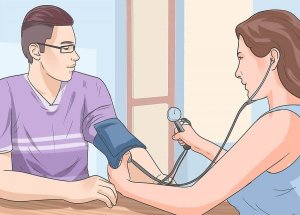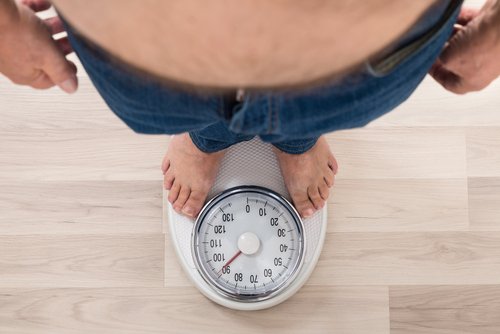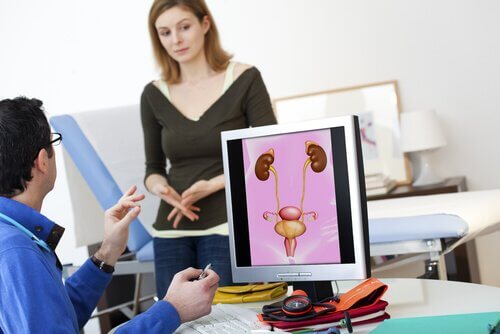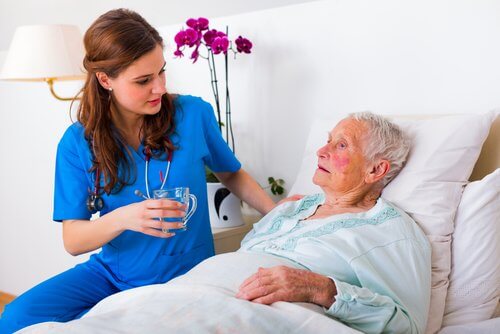5 Reasons Why You Might Have High Blood Pressure


Reviewed and approved by the doctor Nelton Abdon Ramos Rojas
High blood pressure, also known as hypertension, is a condition that endangers your health.
Blood pressure is essential for health blood circulation, transporting the oxygen and nutrients that the body needs. It’s the force that moves the blood along our arteries as it travels throughout your body to sustain your organs.
High blood pressure occurs when the arterioles narrow, forcing the heart to pump more blood. The consequences of hypertension can range from cardiac failure, strokes to heart attacks.
If doctors are unable to identify the cause, the risk of suffering a heart attack or stroke raises by 60%.
High blood pressure, a”silent killer”
High blood pressure doesn’t show any symptoms, which explains why it often goes unnoticed in most cases. Usually, we only start noticing it when it’s already a serious health problem.
31% of the world population has high blood pressure. Almost 16 thousand people aren’t even aware of it.
There is a genetic predisposition to this condition. Recent studies have shown that certain genetic modifications interfere with the kidney’s role in salt regulation and other mutations.
However, high blood pressure doesn’t always form for that reason. In any case, it’s important to avoid a sedentary lifestyle and take care of your dietary habits.
Also see: 8 Tips to Correctly Take Your Blood Pressure at Home
5 reasons why you might have high blood pressure
Every case of hypertension is different. However, there are known risk factors that can lead to the condition. Most of them are linked to your everyday habits.
1. Being overweight

Recent studies have shown that people who are overweight or obese tend to have a higher blood pressure. As a result, the heart has to work even harder.
Losing weight reduces pressure, thus lowering the cardiovascular risk as well.
2. Unhealthy lifestyle
Excessive alcohol consumption, smoking, taking in too much salt and lack of physical activity are all risk factors for high blood pressure.
Our culture’s deep-rooted sedentary lifestyle plays a major role in the rising cases of hypertension in adults and young people.
- Try to exercise everyday. You can start with 30-minute walks each day and add on more cardio exercises to your routine.
- Follow a balanced diet. By choosing fruits and vegetables, low-fat foods and whole grains, you can positively impact your health.
- Manage your stress and emotions. Clinical studies have concluded that anger, hostility, stress and other strong, unresolved emotions and feelings contribute to raising blood pressure.
3. Clinical causes

High blood pressure can also have a link with chronic renal conditions, thyroid problems, diabetes and sleep apnea.
Certain studies have shown that 10% of patients suffer from secondary hypertension. In other words, the high blood pressure can result from another clinical problem.
We recommend that you read: 8 Early Signs of Renal Insufficiency
4. Medication
Some medications that treat asthma as well as hormones, such as contraceptives, can raise blood pressure. Also on the list are certain non-steroidal anti–inflammatory drugs, antidepressants and painkillers.
These medictions can impact blood pressure because they alter the sodium and liquid balance in the body. As a response, the blood vessels contract, resulting in hypertension.
5. Age

People over 40 have a higher chance of rising blood pressure. As we age, our blood vessels weaken, losing their elasticity.
Arteries change and harden as years go by, making the heart work overtime. Similar to any other overworked muscle, the heart increases in size in order to take on the extra load. As it gets bigger, the heart requires more blood and oxygen. However, it won’t always be capable of sustaining those circulatory needs.
For that very reason, keeping your daily habits in check is essential if you want to enjoy your health for years to come.
- Avoid packaged foods in addition to excessive salt consumption.
- Drink less alcohol and try to limit smoking more and more each day.
By tweaking your lifestyle and taking the medications prescribed by your doctor, you can control your blood pressure and lessen its side-effects.
Remember that high blood pressure might not make you feel especially sick, but it’s a condition that should be treated as seriously as it actually is.
Featured image courtesy of © wikiHow.com
All cited sources were thoroughly reviewed by our team to ensure their quality, reliability, currency, and validity. The bibliography of this article was considered reliable and of academic or scientific accuracy.
- Wu CY, Hu HY, Chou YJ, Huang N, Chou YC, Li CP. High Blood Pressure and All-Cause and Cardiovascular Disease Mortalities in Community-Dwelling Older Adults. Medicine (Baltimore). 2015;94(47):e2160. doi:10.1097/MD.0000000000002160
- National Institute on Aging. (n.d.). High Blood Pressure. Retrieved on May 19, 2020 from https://www.nia.nih.gov/health/high-blood-pressure
- Jiang SZ, Lu W, Zong XF, Ruan HY, Liu Y. Obesity and hypertension. Exp Ther Med. 2016;12(4):2395‐2399. doi:10.3892/etm.2016.3667
- Kulkarni, S., O’Farrell, I., Erasi, M., & Kochar, M. S. (1998, December). Stress and hypertension. Wisconsin Medical Journal. https://doi.org/10.1177/003693307301800413
-
Elliott WJ. Drug interactions and drugs that affect blood pressure. J Clin Hypertens (Greenwich). 2006;8(10):731‐737. doi:10.1111/j.1524-6175.2006.05939.x
- National High Blood Pressure Education Program. The Seventh Report of the Joint National Committee on Prevention, Detection, Evaluation, and Treatment of High Blood Pressure. Bethesda (MD): National Heart, Lung, and Blood Institute (US); 2004 Aug. Drugs and Other Agents Affecting Blood Pressure. Available from: https://www.ncbi.nlm.nih.gov/books/NBK9635/
- Mukamal KJ. The effects of smoking and drinking on cardiovascular disease and risk factors. Alcohol Res Health. 2006;29(3):199‐202.
This text is provided for informational purposes only and does not replace consultation with a professional. If in doubt, consult your specialist.








